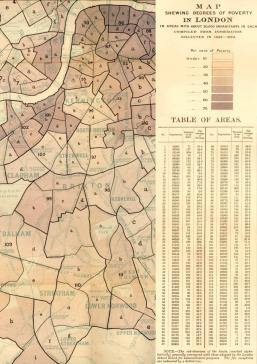Raising one’s standard of living seems a desire so familiar to us that we do not hesitate to judge it common to people at any place and time. Nevertheless, this belief in the possibility and desirability of a general economic amelioration is not self-evident at all. Within anti-materialistic thought or cyclical theories of changes between wealth and poverty, for instance, no general progress is conceivable.
Bernhard Kleeberg's project therefore explored the concept of raising the standard of living as a historical phenomenon that emerges and is being transformed within a polycentric order of different kinds of knowledge: economic theory, moral philosophy, as well as political and social practices. Of special interest were the epistemological differentiations of knowledge about the standard of living between social expectations, practical knowledge, theoretical orders of knowledge, and basic religious confidence.
Enlightenment thought since the mid-eighteenth century had provided the assumption that the welfare of the members of a society wisely created by God would automatically increase. Although this idea gained ground in pro-revolutionary treatises, objections from population theory and moral theology dominated the philanthropic discourse until the late nineteenth century. Standards of living were predominantly defined in normative terms, and poverty considered the natural consequence of the indolent and improvident behavior of the “undeserving poor.” Thus, to raise the standard of living meant to raise individual morality, not to improve the structural conditions of the poor. Even the maintenance of a minimum level of subsistence was considered dangerous, as it would deprive the paupers of any incentives necessary for improving their habits.
Still in the course of the statistical movement of the 1830s, more and more practical measures to solve the social problem were introduced by those concerned with vital statistics, setting up necessary standards of cleanliness, nutrition, and education. Since the 1840s economic and social developments, technical progress ,and the end of the pauperism-crisis lead to new expectations of wealth in industrialized societies. Developmental thinking in the sciences, as well as tendencies of standardization and normalization, provided a cognitive basis for certainty in economic diagnosis and prognosis, discarding cyclical theories of wealth and regarding general progress conceivable. This made the success of practical actions to improve the material conditions of the poor probable. By and by, politicians introduced structural measures to prevent people from falling into a state below a certain minimum standard of living, in which the daily struggle for life was considered to inhibit provident behavior.

